
A stunning new public library and high temple to reading has opened in Paris for both local and traveling bibliophiles. It goes by a nickname that couldn’t be more apt: the Oval Paradise.
After a painstaking 12-year restoration that carried a price tag of €261 million, the Bibliothèque Nationale de France’s historic Richelieu site in 2nd arrondissement has reopened the last of its reading rooms, giving Parisians and visitors a soaring new space in which to read, work, study, write…or just daydream.
Get the inside scoop on the latest cultural happenings all over the world delivered weekly to your inbox with our email newsletter.
And unlike the library’s other reading spaces – which are reserved exclusively for accredited researchers – the Oval Room (Salle Ovale) is free to use and open to the general public.
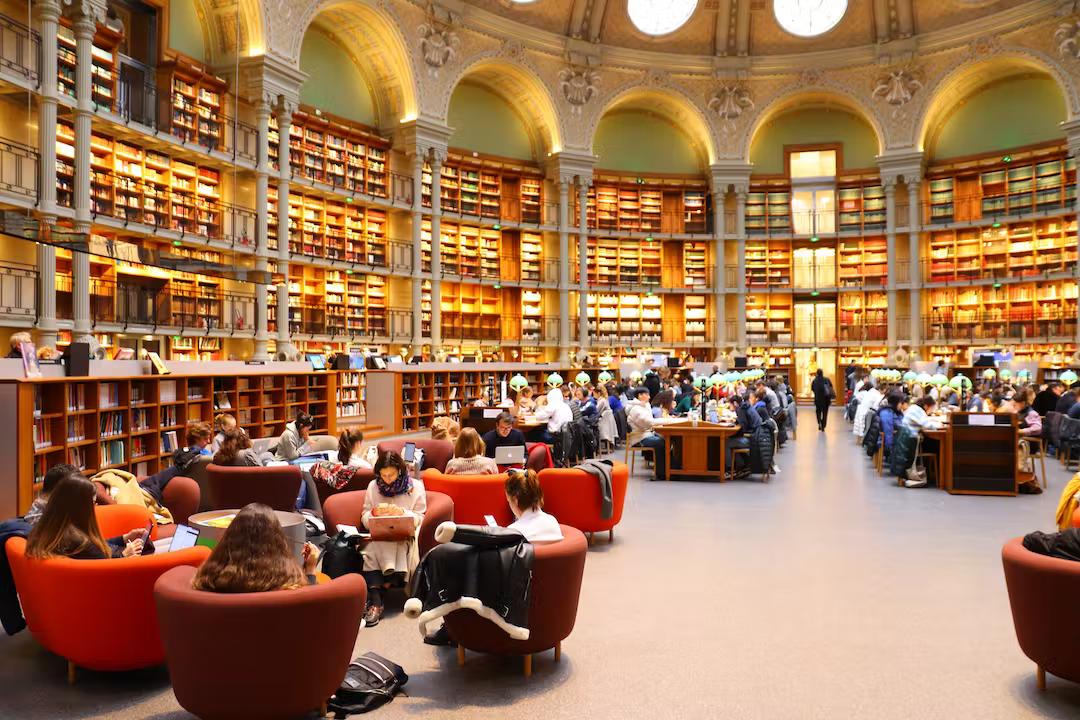 Locals and visitors alike are welcome to curl up with a book and read for hours in the soaring Salle Ovale © Vivian Song
Locals and visitors alike are welcome to curl up with a book and read for hours in the soaring Salle Ovale © Vivian Song
Since it opened its doors last September, the Oval Paradise has become Paris’s newest architectural attraction. A monumental glass ceiling brings natural light flooding into the majestic setting, where 20,000 books on French art, history and literature – all free to peruse – are stacked under soaring archways.
But it’s not all textbook academia. If you’re more into manga than Montesquieu, you may be interested to learn that nearly half (or 9000) of the room’s holdings consist of comic books and graphic novels from around the world, the largest collection of its kind in France.
If you’re a student or working remotely, park yourself at any one of the long tables in the center of the room (where you’ll find free wi-fi and charging outlets). If you’re more interested in doing some leisurely reading in the hallowed halls of arguably the most beautiful public reading room in Paris, settle into an armchair or a spot on a bench and dig into your book undisturbed.
The library’s refresh, which was timed to coincide with the site’s 300th anniversary, also includes a newly open museum area, the Mazarin Gallery, which features 900 highlights from the library’s collection of ancient maps, stamps and manuscripts.
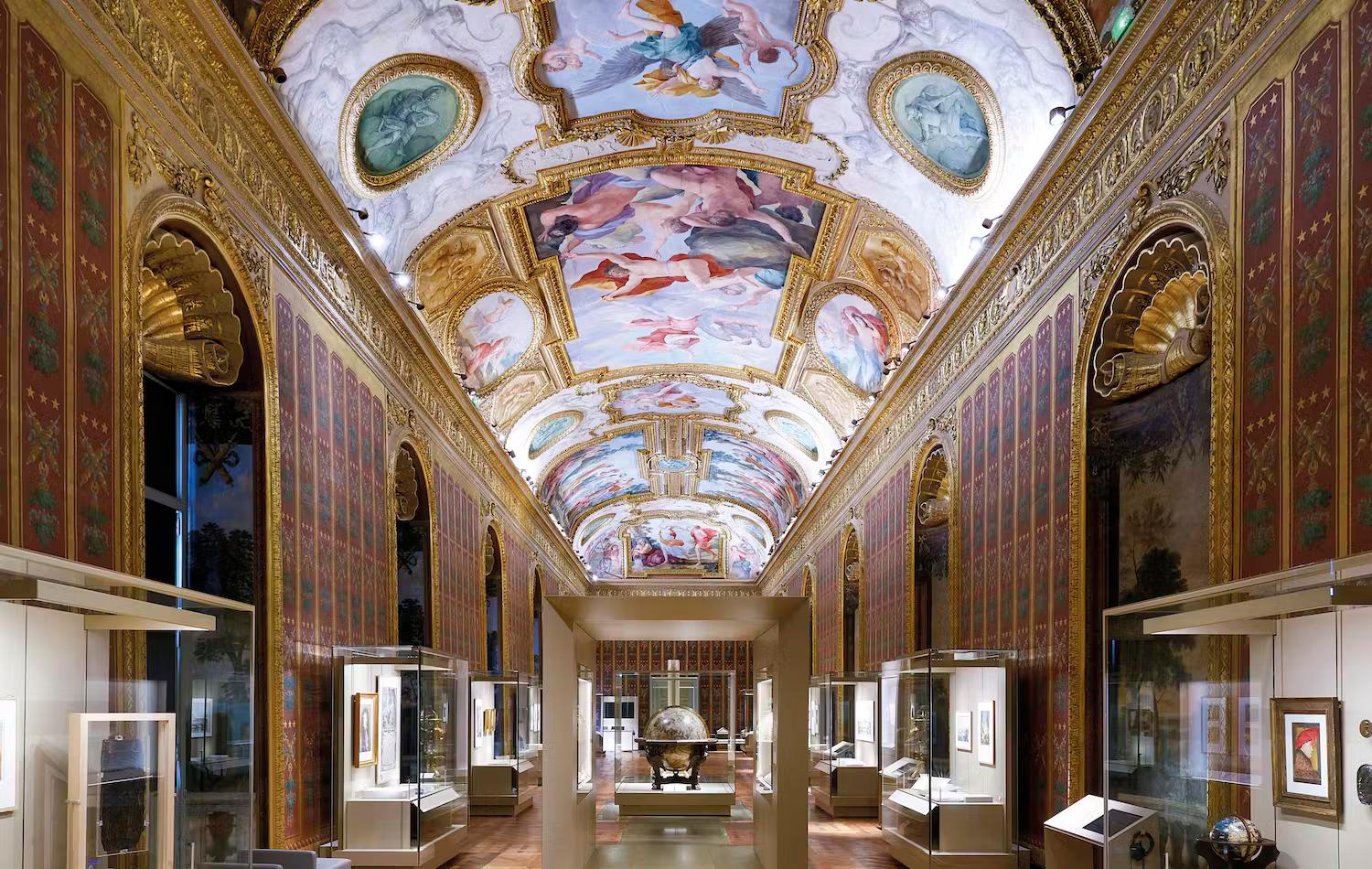 The Mazarin Gallery, adjacent to the Salle Ovale, displays highlights from the Bibliothèque Nationale de France’s peerless collections © Guillaume Murat
The Mazarin Gallery, adjacent to the Salle Ovale, displays highlights from the Bibliothèque Nationale de France’s peerless collections © Guillaume Murat
When you’re done reading, head over to the museum to check out Victor Hugo’s original manuscript for Les Misérables, Mozart’s hand-written score for the opera Don Giovanni and handwritten pages from Marcel Proust’s In Search of Lost Time.
The best places in Paris for reading
The revival of the Oval Room makes an exciting addition to the city’s literary culture. Yet deeply literary Paris has never been short of idyllic reading spots. From historic cafés and bookshops frequented by some of Western literature’s greatest intellectuals to intimate spaces that provide just the right backdrop for cracking open a new book, here are some other places to escape with a great book in Paris.
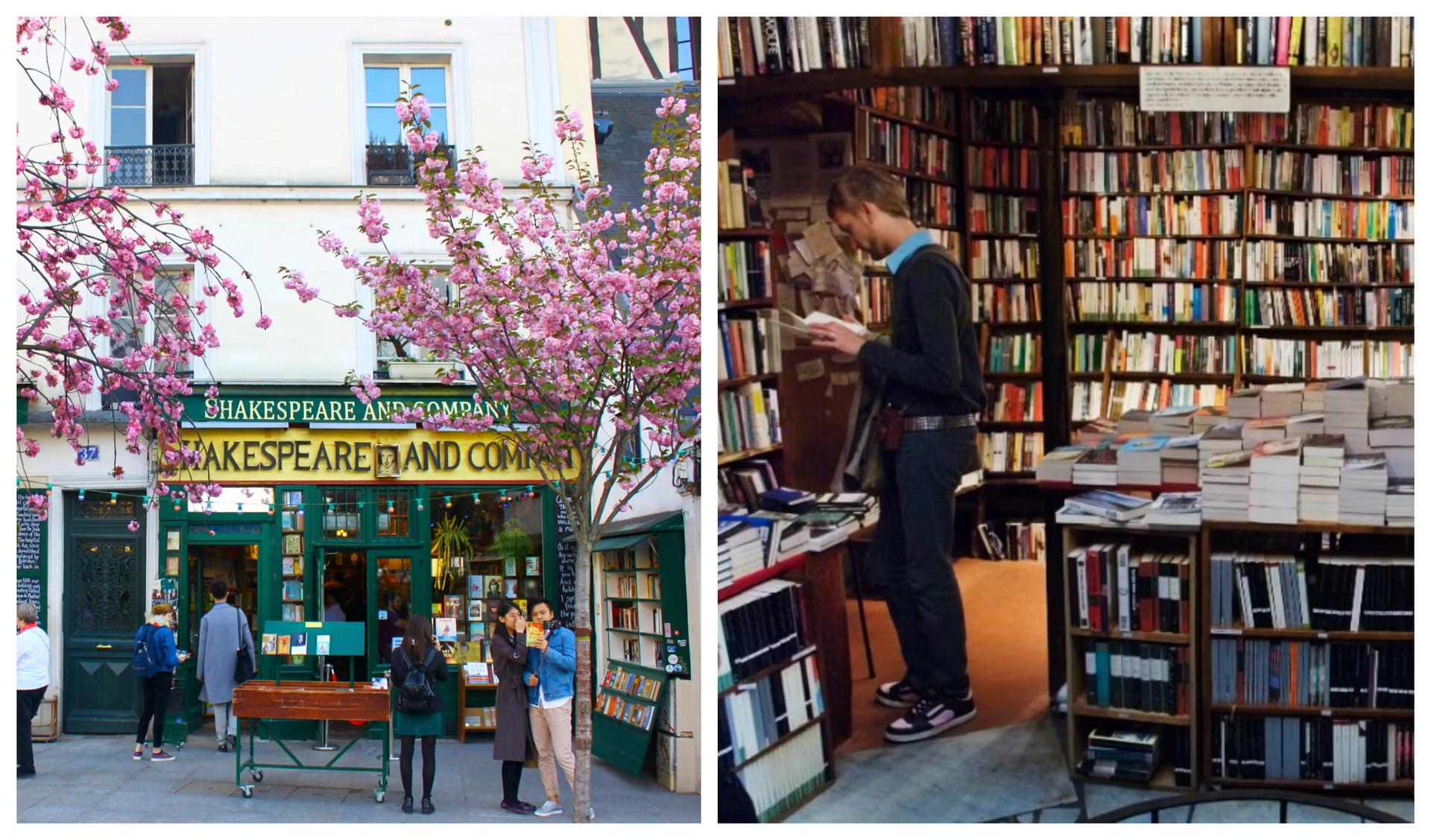 Directly across the Seine from Notre-Dame, Shakespeare and Company is a true bookworm’s paradise © Vivian Song / Will Salter / Lonely Planet
Directly across the Seine from Notre-Dame, Shakespeare and Company is a true bookworm’s paradise © Vivian Song / Will Salter / Lonely Planet
Shakespeare and Company
When American expat George Whitman opened Shakespeare and Company in 1951 across from the Notre-Dame Cathedral, his aim was to revive the literary legacy of American bookseller and publisher Sylvia Beach, whose bookshop of the same name attracted expat writers like Ernest Hemingway, F. Scott Fitzgerald and Gertrude Stein before she was forced to close by the Nazis.
After winding your way through the aisles at ground level, head upstairs to one of the reading rooms, where floor-to-ceiling shelves groan under the weight of vintage books that are free to read. A strict “no photos” policy ensures few distractions for serious readers eager to dive into their volume in the ghostly presence of writers like James Baldwin, Richard Wright and Henry Miller – all onetime Whitman customers.
If you get thirsty, head next door to the Shakespeare and Company Café; if you crave a spot of fresh air, head to the nearby Square René Viviani, home to the oldest tree in Paris.
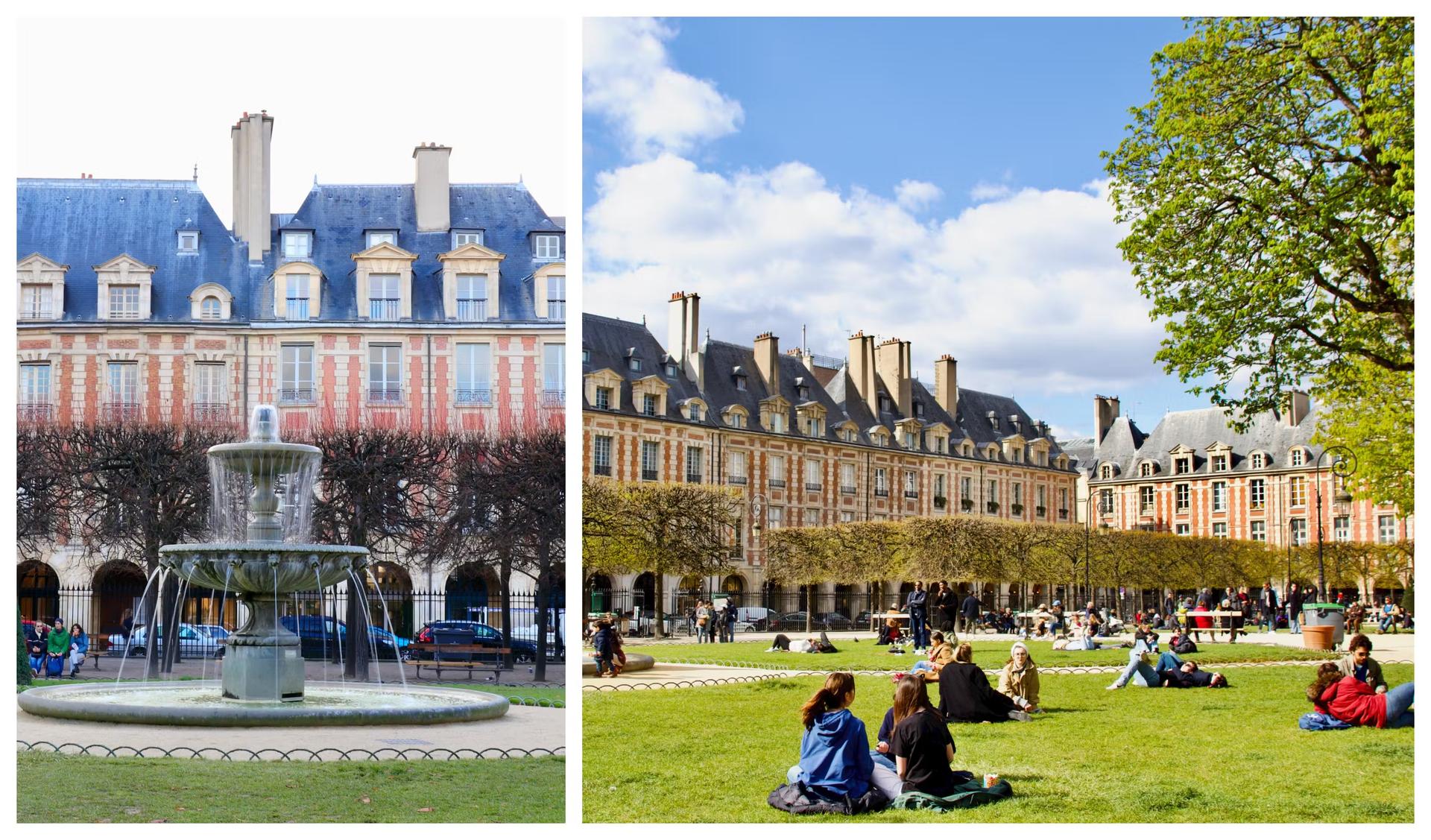 Place des Vosges boasts a strong literary connection © Vivian Song
Place des Vosges boasts a strong literary connection © Vivian Song
Place des Vosges
While it’s safe to say that any of Paris’s gardens makes for a scenic reading spot, Place des Vosges in the Marais boasts a particularly strong literary connection: it was the home of Victor Hugo. The author of Les Misérables and The Hunchback of Notre-Dame lived in an apartment on the southeast corner of the square – today a free museum that reopened in 2021 with a new courtyard cafe.
Museum or no museum, Place des Vosges is simply one of the most beautiful squares in Paris. In warmer weather, linden trees provide shade over the park benches, while birds provide a soothing soundtrack. If it gets chilly, take refuge in any of the cafes along the arcades and continue your reading with a hot drink and a scenic view.
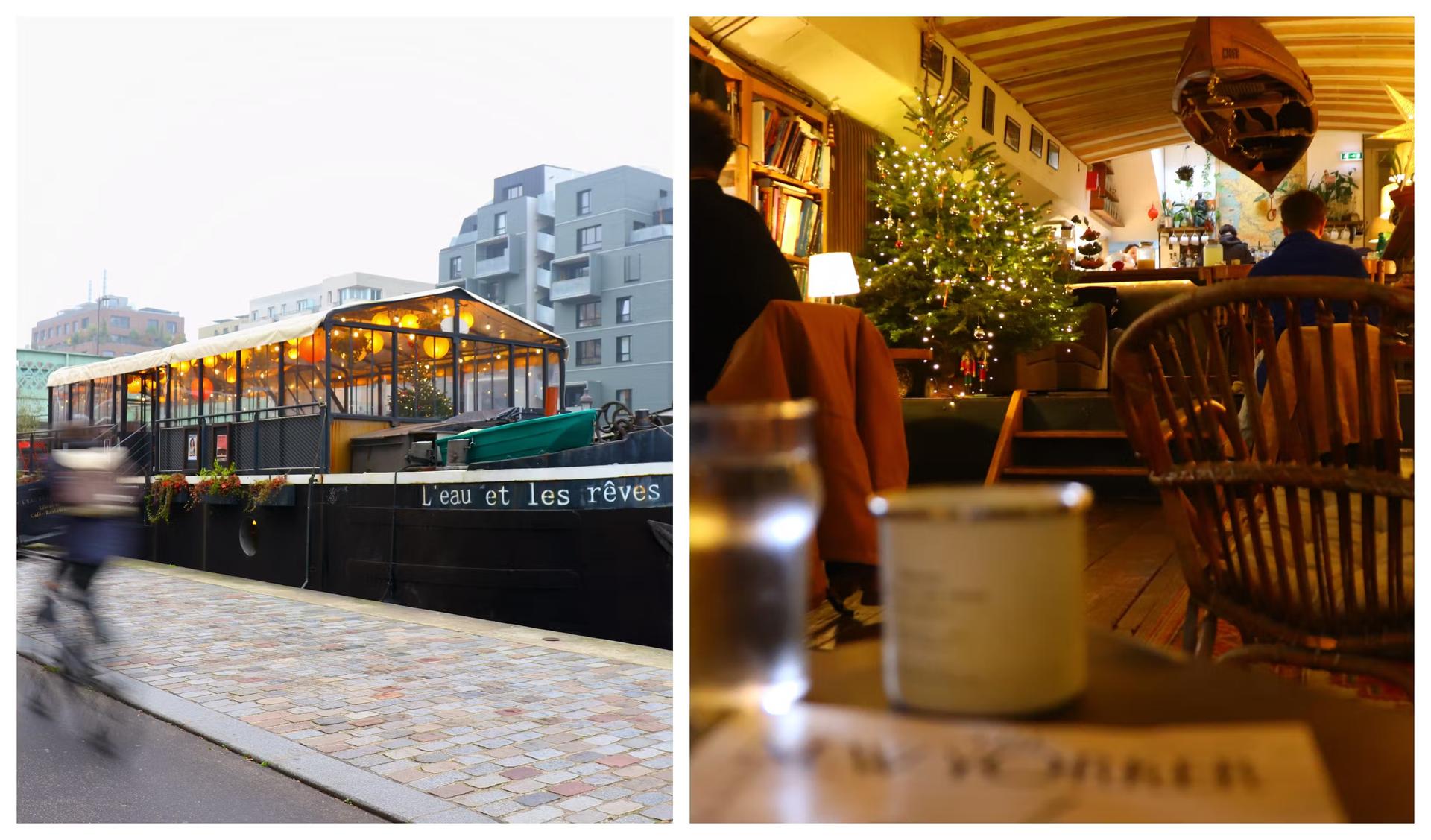 L’eau et les rêves is a floating cafe-bookshop © Vivian Song
L’eau et les rêves is a floating cafe-bookshop © Vivian Song
L’eau et les rêves
Far from the tourist crowds, on the northeast edge of Paris’s 19th arrondissement, a floating cafe-bookshop bears a poetic name that translates to Water and Dreams. On clear, warm days, the upstairs terrace of the barge offers readers a waterfront view of the canal along the quai de l’Oise. Below deck, the space is divided between a bookshop and library with books that visitors are free to leaf through.
The cafe-restaurant serves up beer, wine and hot drinks, along with hot meals, cheese and charcuterie boards, plus brunches come the weekend. Though most of the books are in French, a perusal of the library may yield a few English-language surprises like a copy of a New Yorker magazine and travel books.
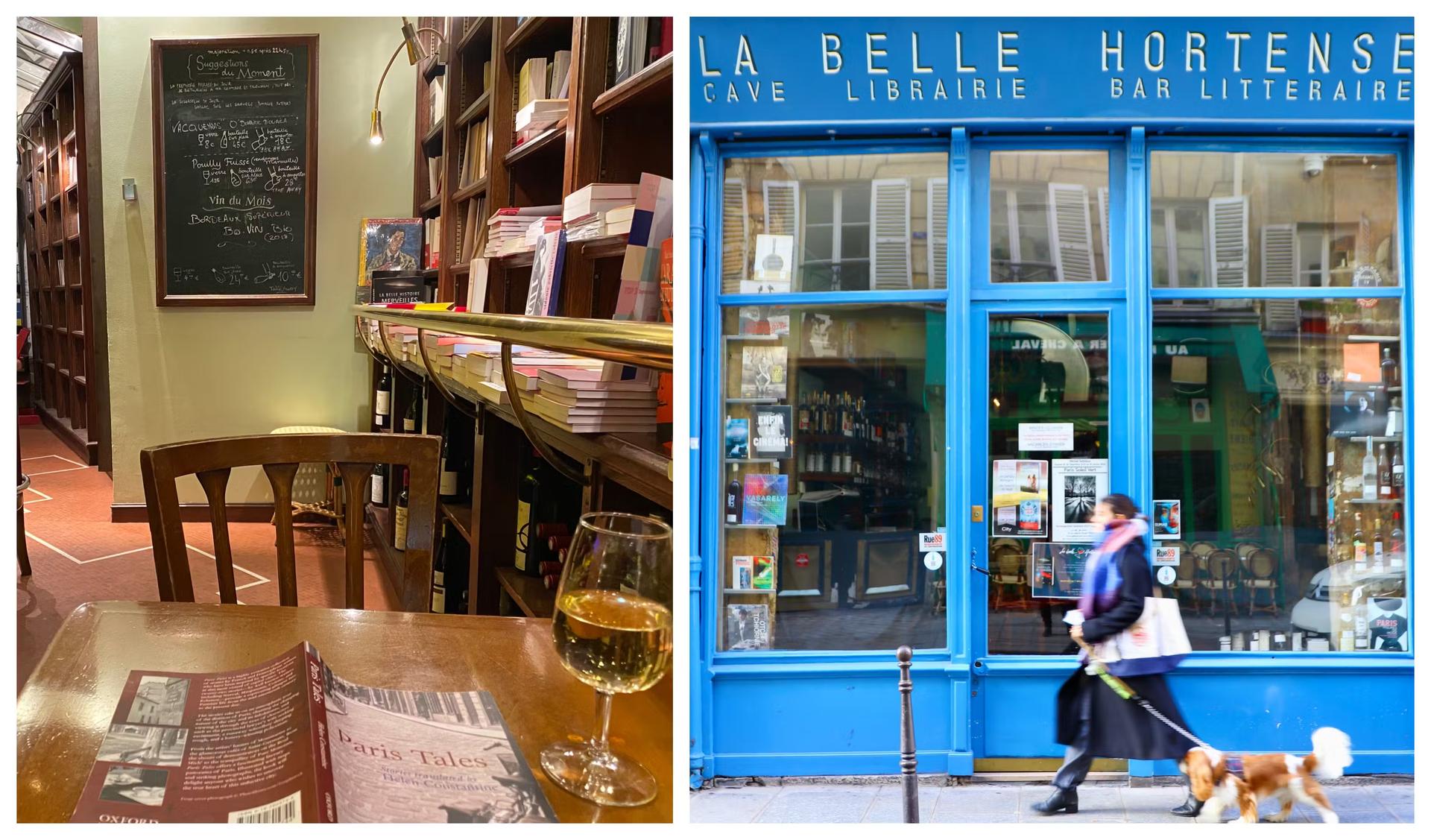 Wine-loving bibliophiles will love La Belle Hortense © Vivian Song
Wine-loving bibliophiles will love La Belle Hortense © Vivian Song
La Belle Hortense
Wine-loving bibliophiles should head to the Marais, where books and wine are given equal place of honor in the intimate literary wine bar La Belle Hortense. If you go right when the doors open at 5:30pm, you’re more likely to nab the sole table for two at the front of the bar, at which you can read while sipping a glass of dry, oaky white wine like Pouilly-Fuissé or a robust, full-bodied shiraz. If you’re feeling bold, take a seat at the zinc bar alongside the locals and let their sing-song French chatter and the smooth-jazz background music create just enough ambient noise to enhance your reading experience.
The novels, biographies, poetry collections and cookbooks that line the walls are all for sale, as are the bottles of carefully selected French wines that fill the lower shelves. If you want a little more privacy, head to the back room for a quieter time before the dinner crowd settles in.
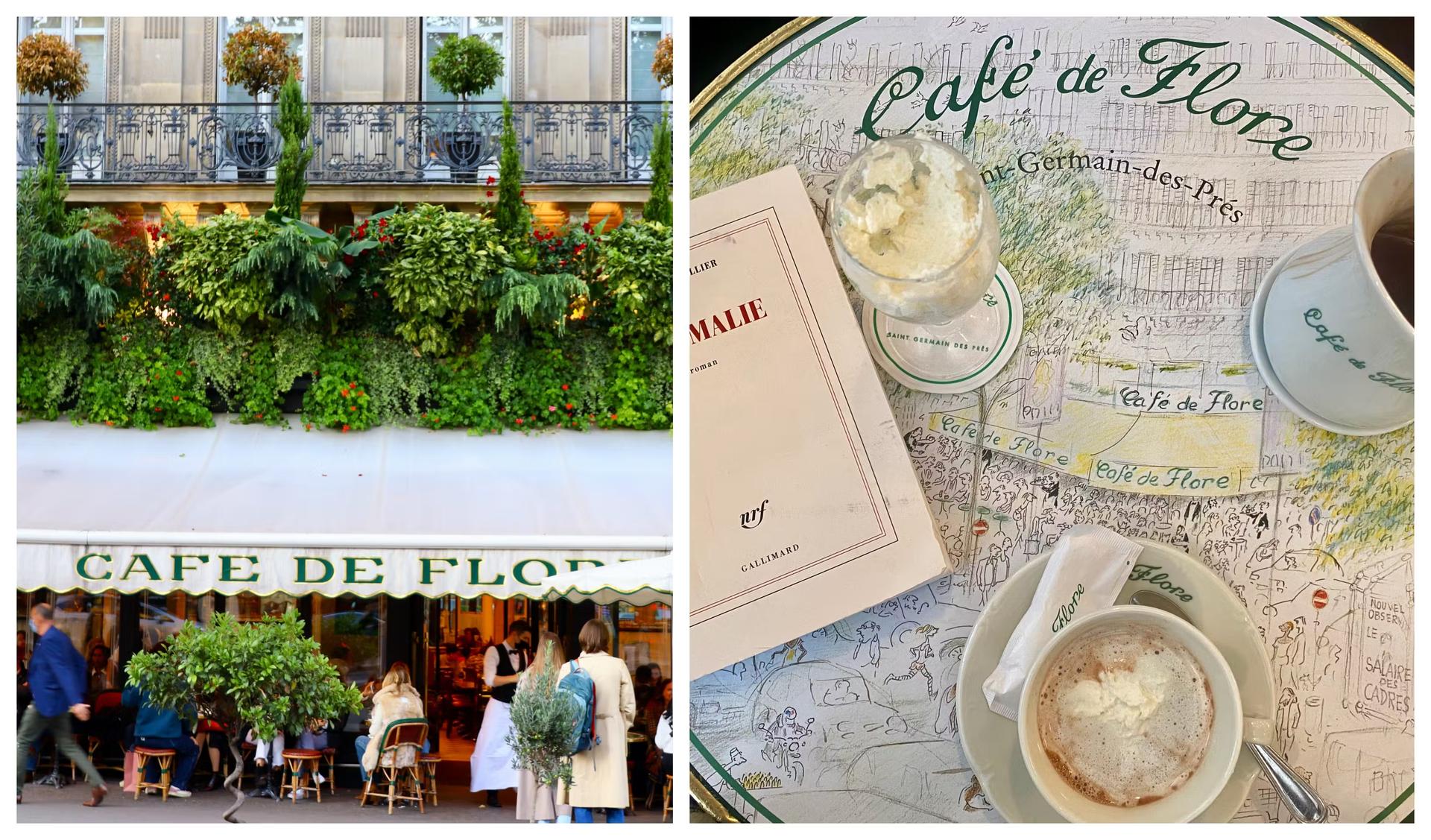 Cafe de Flore was a meeting place meeting place for literary greats like Ernest Hemingway, Truman Capote and Albert Camus © Vivian Song
Cafe de Flore was a meeting place meeting place for literary greats like Ernest Hemingway, Truman Capote and Albert Camus © Vivian Song
Café de Flore
It would be a shame to write off Café de Flore as just a tourist trap. Yet the long queues of tourists shouldn’t detract from the cafe’s rich heritage as a second home to writers Simone de Beauvoir and Jean-Paul Sartre; the birthplace of existentialism; and a meeting place for literary greats like Ernest Hemingway, Truman Capote and Albert Camus. In other words, the general din of cafe life today is likely not that much different from the cacophony back in its heyday, when expat writers and French intellectuals used the cafe as their intellectual salon.
Between sips of the spot’s famously rich hot chocolate, channel the spirit of Sartre over a few pages of Being and Nothingness. If that’s too heavy, opt for a short story by Hemingway or Mavis Gallant. Next door, Les Deux Magots boasts a similarly illustrious heritage, with a clientele that once included French poet Arthur Rimbaud and writers James Joyce and James Baldwin.



